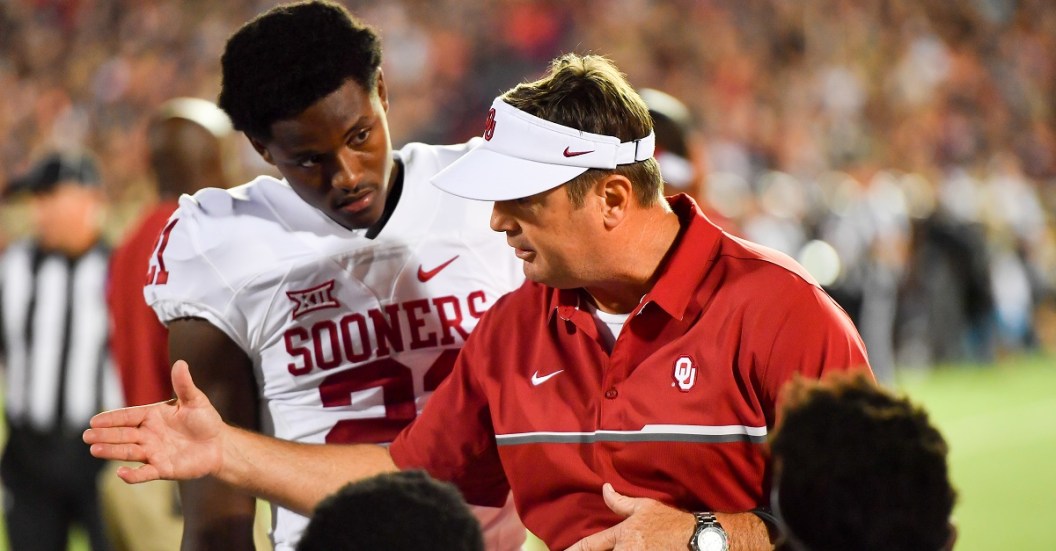It is not common at all for football players at NCAA institutions to be suspended for positive PED tests.In fact, there is only a one percent occurrence of that happening. However, Oklahoma freshman defensive lineman Amani Bledsoe will be suspended by the NCAA for a full year because of that exact reason.
Videos by FanBuzz
RELATED: Miserable Will Grier whines and complains about his exit from Florida
Bledsoe failed an NCAA performance enhancing drug test, according to a report from the Lawrence Journal-World. He was a late scratch from the Sooners' 56-3 victory over Kansas on Saturday and was considered suspended indefinitely for a violation of team rules.
RELATED: Will Grier to be suspended for full year
To show just how rare a PED violation is in the NCAA here is an excerpt from former New York Times writer Ray Glier who did some research on the matter last year when Will Grier was suspended for the same reason.
Mary Wilfert runs the NCAA's drug-testing program and she said 11,146 student-athletes were tested by the NCAA in 2014. There were 172 positive tests. Of those positive tests, 103 were for PEDs, and 55 were for the more serious doping/anabolic steroids.
Most schools have their own policies they follow to supplement the NCAA's rules. However, a drug test given by the school does not result in a year-long suspension and in fact, is usually only a single game with that number increasing with each positive test result.
Bledsoe will not be eligible to return to the field for the Sooners until the eighth game of next season. However, he does plan to appeal the decision and could potentially soften the blow, but if Grier's case teaches us anything, that is unlikely to happen.
[h/t Scout]
